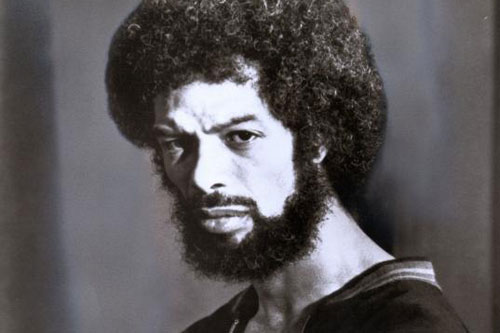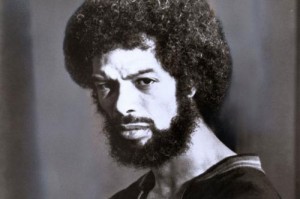
Recording Career
Scott-Heron began his recording career in 1970 with the LP Small Talk at 125th and Lenox. Bob Thiele of Flying Dutchman Records produced the album, and Scott-Heron was accompanied by Eddie Knowles and Charlie Saunders on conga and David Barnes on percussion and vocals. The album’s 15 tracks dealt with themes such as the superficiality of television and mass consumerism, the hypocrisy of some would-be Black revolutionaries, and white middle-class ignorance of the difficulties faced by inner-city residents. In the liner notes, Scott-Heron acknowledged as influences Richie Havens, John Coltrane, Otis Redding, Jose Feliciano, Billie Holiday, Langston Hughes, Malcolm X, Huey Newton, Nina Simone, and long-time collaborator Jackson.
Scott-Heron’s 1971 album Pieces of a Man used more conventional song structures than the loose, spoken-word feel of Small Talk. He was joined by Jackson, Johnny Pate (conductor), Ron Carter on bass and bass guitar, drummer Bernard “Pretty” Purdie, Burt Jones playing electric guitar, and Hubert Laws on flute and saxophone, with Thiele producing again. Scott-Heron’s third album, Free Will, was released in 1972. Jackson, Purdie, Laws, Knowles, and Saunders all returned to play on Free Will and were joined by Jerry Jemmott playing bass, David Spinozza on guitar, and Horace Ott (arranger and conductor). Carter later said about Scott-Heron’s voice, “He wasn’t a great singer, but, with that voice, if he had whispered it would have been dynamic. It was a voice like you would have for Shakespeare.”
1974 saw another LP collaboration with Brian Jackson, the critically acclaimed opus Winter in America, with Bob Adams on drums and Danny Bowens on bass. The album contained Scott-Heron’s most cohesive material and featured more of Jackson’s creative input than his previous albums had. Winter in America has been regarded by many critics as the two musicians’ most artistic effort.The following year, Scott-Heron and Jackson also released Midnight Band: The First Minute of a New Day. A live album, It’s Your World, followed in 1976 and a recording of spoken poetry, The Mind of Gil Scott-Heron, was released in 1979. Another success followed with the hit single “Angel Dust”, which he recorded as a single with producer Malcolm Cecil. “Angel Dust” peaked at No.15 on the R&B charts in 1978.
Who Will Pay Reparations for my Soul
In 1979, Scott-Heron played at the No Nukes concerts at Madison Square Garden. The concerts were organized by Musicians United for Safe Energy to protest the use of nuclear energy following the Three Mile Island accident. Scott-Heron’s song, “We Almost Lost Detroit” was included in the No Nukes album of concert highlights. It alluded to a previous nuclear power plant accident and was also the title of a book by John G. Fuller. Scott-Heron was also a frequent critic of President Ronald Reagan and his conservative policies.
The Ghetto Code

